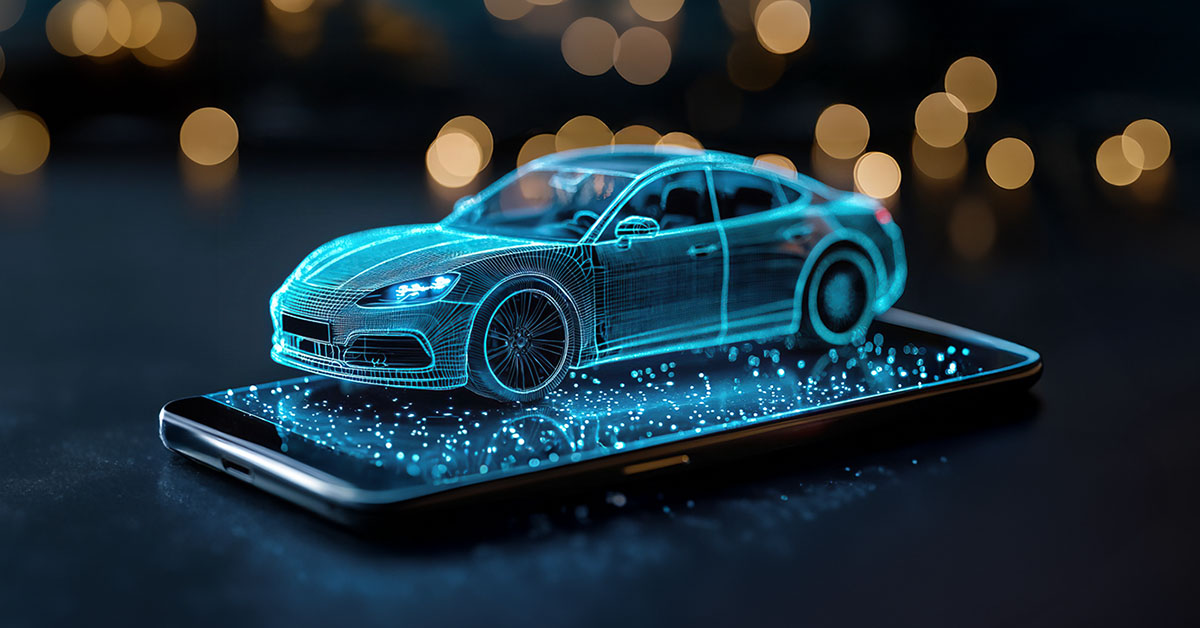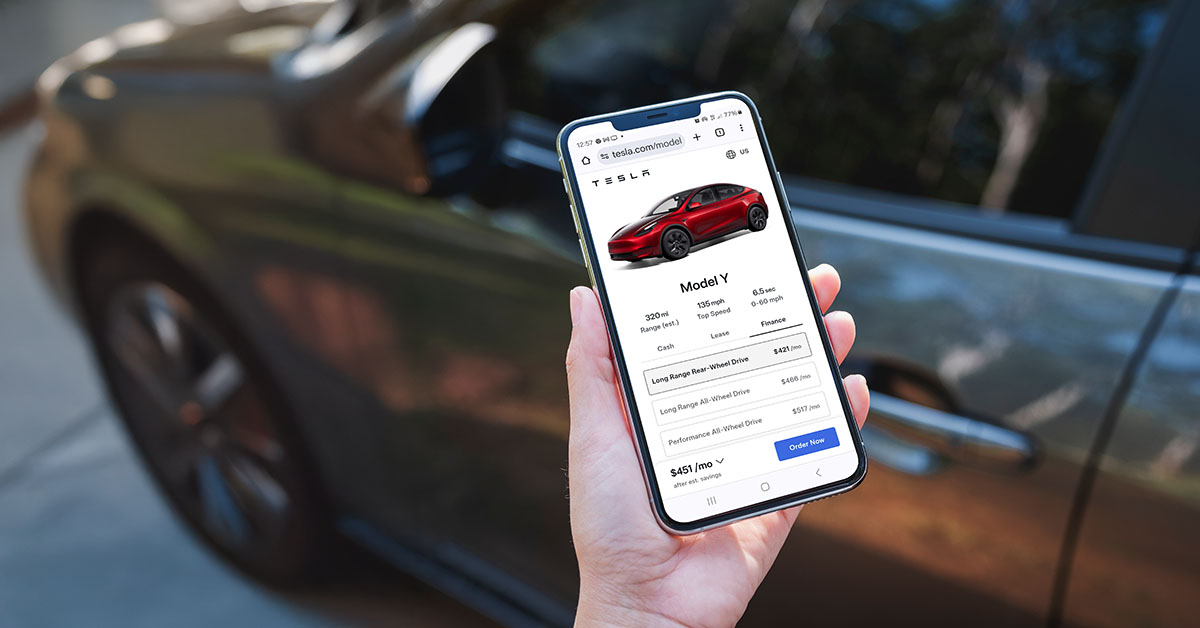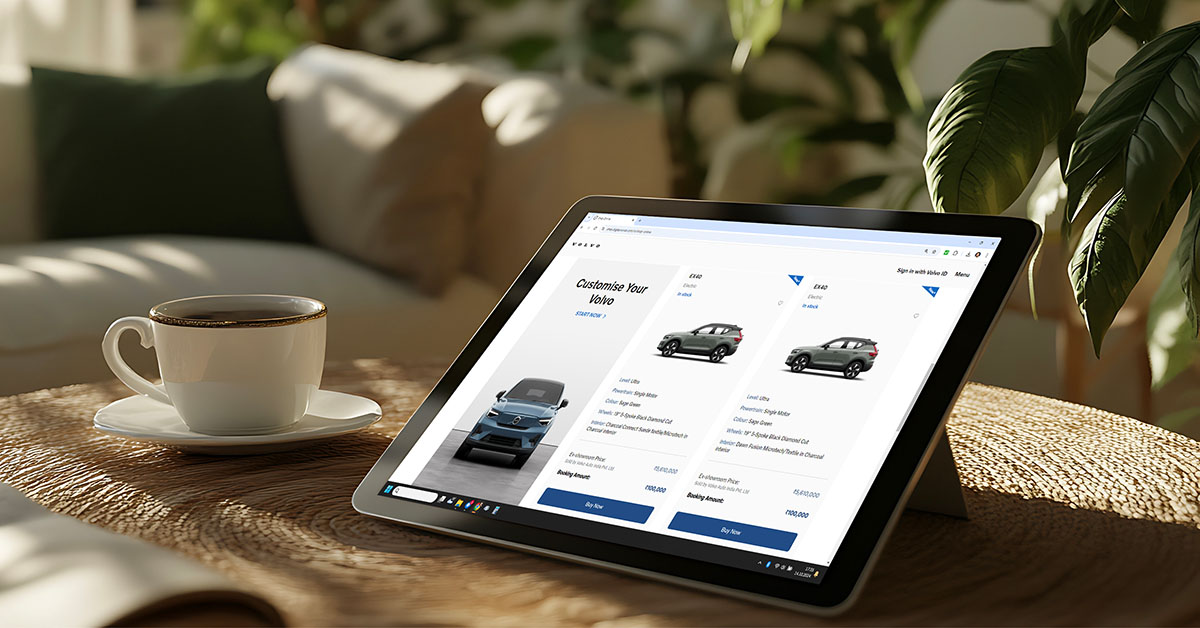
E-commerce: the new engine for the automotive industry
The automotive industry, long dominated by traditional business models and face-to-face interactions, is experiencing a seismic shift towards e-commerce and digital technologies.
As both individual and business customers increasingly prefer online experiences for product discovery and purchases, e-commerce is emerging as a powerful tool, reshaping how vehicles, parts, and services are marketed and sold.
This article examines how various players in the automotive sector are adapting to this evolving landscape, showcasing innovative e-commerce strategies and business models.
Transformation to B2B e-commerce
Automakers are increasingly recognizing the importance of B2B e-commerce in transforming their interactions with traditional distribution networks. A prime example is Mercedes-Benz’s B2B Connect platform.
B2B Connect is a comprehensive digital tool designed for independent workshops and service providers who work with Mercedes-Benz vehicles. This platform offers a centralized solution for accessing a wide range of resources, including ordering genuine parts, utilizing diagnostic tools, and accessing up-to-date repair and maintenance information.
Some key features include:
- Integration with the WebParts system: It allows users to quickly identify and order Mercedes-Benz genuine parts and remanufactured parts directly in B2B Connect, ensuring that workshops can efficiently find the correct parts for any specific vehicle.
- Digital Service Booklet (DSB): This feature offers VIN-based service history and documentation, facilitating management of service records and helping workshops maintain accurate and up-to-date service histories for the vehicles they work on.
- Diagnostic tools: The platform provides access to advanced diagnostic tools, ensuring that workshops can perform precise and effective vehicle technical inspections.
- Workflow Integration: The platform is designed to support the entire workflow of a workshop, from vehicle diagnosis to repair and maintenance, streamlining processes and improving overall efficiency.
The Mercedes-Benz B2B Connect is continuously updated to include new features and capabilities, with recent improvements focusing on empowering workshops to access all the information, tools and products they need in one place.

Direct-to-consumer models
For decades, car manufacturers relied on vast networks of dealerships to reach customers. However, the rise of e-commerce has given them the power to sell directly to consumers, bypassing traditional intermediaries.
Tesla is a perfect example. The electric vehicle pioneer has embraced a direct-to-consumer (D2C) model, allowing customers to order custom vehicles online, track their production, and arrange for delivery — all without stepping foot in a dealership. This approach has not only cut costs but also provided Tesla with direct access to customer data, enabling personalized marketing and product development.
Tesla operates two distinct e-commerce platforms: its main site, tesla.com, and shop.tesla.com. The main site was built in-house to support the sale of Tesla’s electric vehicles, as no off-the-shelf solution could meet the company’s specific requirements. The system leverages a headless commerce architecture, where Tesla has decoupled the front-end from the back-end for greater flexibility. This setup enables API-driven customization, allowing for streamlined customer experiences such as fast delivery, flexible refunds, and better customer service.
And shop-tesla.com, Tesla’s store for accessory and lifestyle products, runs on Shopify Plus, a customizable SaaS e-commerce platform. This integration allows Tesla to efficiently manage a wide range of products, from EV chargers to branded apparel, while providing a reliable and scalable solution to handle the company’s high traffic and transaction volumes.
Tesla is a rare example of a pure D2C model among automakers. However, established players like Volvo, BMW, and Volkswagen are leaning towards hybrid D2C known as the agency model. These companies have long relied on and built relationships with a network of dealers and now seek to integrate these partners into new market realities.

Volvo’s recent transition to a direct-to-consumer approach in the UK illustrates this shift. As of June 2023, Volvo has closed its wholesale channel in the UK, making it the first market to adopt a fully online sales model. Under this new structure, Volvo itself acts as the retailer, while franchise partners operate under agency agreements. This change positions dealers as service providers who facilitate test drives, assist in the purchasing process, and handle vehicle delivery and servicing.
The core of Volvo’s sales operation now lies in its online store, volvocars.com, which offers transparent, fixed prices with no haggling or hidden fees. In addition, a centralized digital inventory system enables Volvo to manage stock nationwide efficiently, ensuring customers can quickly locate and obtain their vehicles.
The move away from a wholesale model is driven not only by cost savings — typically around 30% of the vehicle’s retail price — but also by the desire for complete access to customer data. Volvo realized that investing in advanced data analytics capabilities would help it better understand customer preferences and enhance the purchasing experience.
Volvo plans to extend this direct sales model to Germany starting from 2026, with further expansions in Sweden and Norway anticipated. The transition in Germany will be more gradual due to the need to convert operations at 240 retail locations, but the goal remains to create a unified and customer-centric sales process.
Volvo’s e-commerce platform is built on Salesforce Commerce Cloud, providing a robust solution for both online vehicle sales and parts integration with its dealer networks. With Salesforce CRM and Marketing Cloud embedded into the platform, Volvo has a unified system for personalization and customer management.
The Salesforce Interaction Studio plays a crucial role in real-time behavior tracking across the customer lifecycle, enhancing conversion rates by adapting interactions based on user activity. This setup offers strong omnichannel capabilities, ensuring a seamless transition between online and offline channels, driving not only customer satisfaction but also sales.
BMW Group and Volkswagen Group present similar approaches.
BMW Group has already rolled out an agency model in January 2024 for its MINI brand in Italy, Poland, and Sweden. The change will gradually expand to more European markets, and eventually include the BMW brand in 2026.
Volkswagen Group, in turn, is preparing to shift to this model with all six of its brands: Volkswagen Passenger Cars, Skoda, Seat, Cupra, Audi, and Volkswagen Commercial Vehicles. Ireland is one of the first markets to be affected by this change from 2026.
In the new model, Volkswagen’s dealerships will function as agents whose responsibilities will focus on the physical handover of vehicles and after-sales services such as maintenance and repairs. For these services, dealerships will receive a fixed fee instead of the variable profit margins they traditionally earned on sales.
From the customer’s perspective, the new model offers great flexibility and increased transparency in pricing and sales practices. Buyers can choose to complete their purchase entirely online, or they can visit a dealership to experience the vehicle in person.
B2B2C model
To balance the benefits of D2C with the advantages of their existing dealership networks, car manufacturers are also increasingly turning to the B2B2C model. This strategy still allows them to sell directly to consumers online, while integrating dealers into the transaction process, thereby maintaining strong relationships with these crucial intermediaries.
In the B2B2C model, manufacturers provide the products — vehicles and related services — while dealers handle the logistics, customer interactions, and final transactions. Consumers benefit from a seamless experience where they can browse, customize, and purchase vehicles online, with the support of local dealers who facilitate test drives, financing, and delivery.
One prominent example of this approach is Hyundai’s “Cl!ck to Buy” platform. This innovative B2B2C model enables customers to complete every aspect of the car-buying process online, from vehicle selection and customization to financing and final purchase.

The process begins with customers selecting or configuring online their preferred car model. The platform provides real-time inventory updates, allowing buyers to see exactly what is available and make informed decisions.
Once the vehicle is configured, customers choose a participating dealer — typically one nearby — ensuring that the dealer is part of the process from the start. This selection not only connects customers with a dealer for personalized support but also allows the dealer to provide tailored offers based on the customer’s preferences.
Next, the platform allows customers to explore pricing and various financing options, which can be customized to fit their financial situation. Customers receive personalized quotes and in some markets they can apply for credit online if needed.
Throughout this entire journey, Hyundai provides live support to assist with any questions, ensuring a smooth and stress-free experience.
After reviewing and accepting the final offer, customers can finalize their purchase entirely online. This includes completing necessary paperwork and choosing how they wish to receive their new vehicle. Customers can either pick up their vehicle from the selected dealership or opt for home delivery, adding an extra layer of convenience.
In some markets, Hyundai’s platform also allows for scheduling test drives, either at the dealership or at the customer’s home, further enhancing the buying experience.
This comprehensive approach combines the ease of online shopping with the trusted support of traditional dealerships, ensuring that customers enjoy a seamless, modern car-buying process while still benefiting from the expertise and service of their local dealers.
Hyundai’s Cl!ck to Buy e-commerce platform is powered by Amazon Webstore and Adobe Experience Manager (AEM). This unique combination allows Hyundai to offer an optimized and user-friendly online buying experience. AEM supports the creation of Hyundai’s interactive car configurators, enabling customers to easily personalize their purchases. With Amazon Webstore handling the backend, Hyundai benefits from a scalable and reliable system capable of managing large transaction volumes, while AEM ensures dynamic content delivery and personalized digital experiences for prospective buyers.
Conclusion
The future of the automotive industry is undeniably digital, with e-commerce reshaping how vehicles, parts, and services are marketed and sold. Tesla’s pure D2C model exemplifies this shift, while traditional automotive giants like Volvo, BMW, and Volkswagen are integrating online platforms with traditional dealership networks, ensuring that the customer experience remains seamless and supportive.
As all players in the industry embrace digital strategies, the blending of online and physical sales and customer service channels will likely become the new standard, offering both B2B and B2C customers a more flexible and personalized experience.

